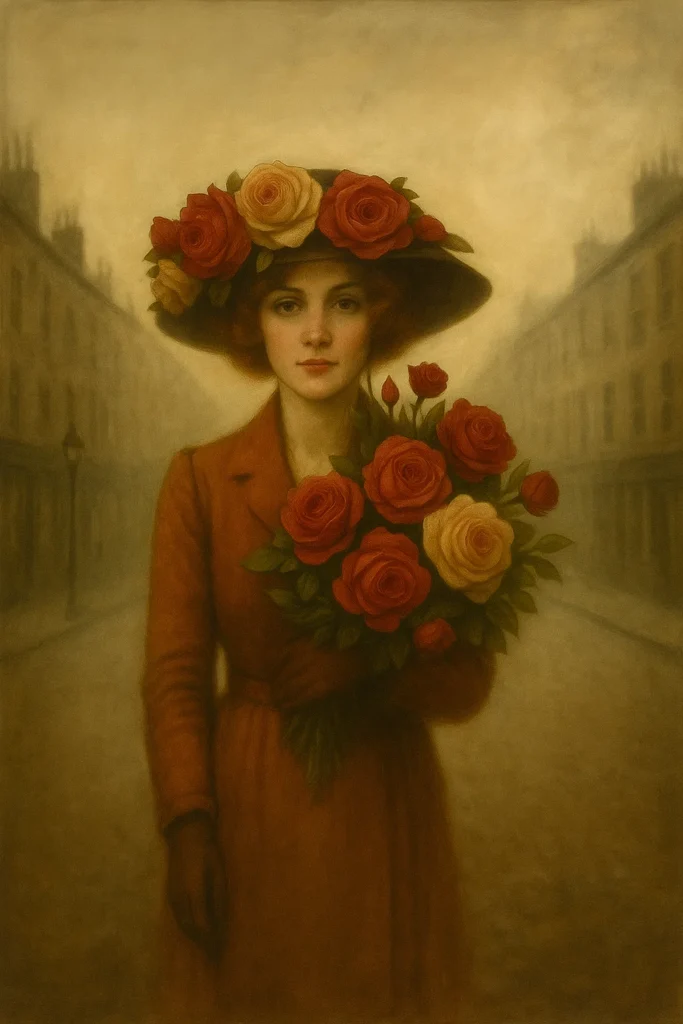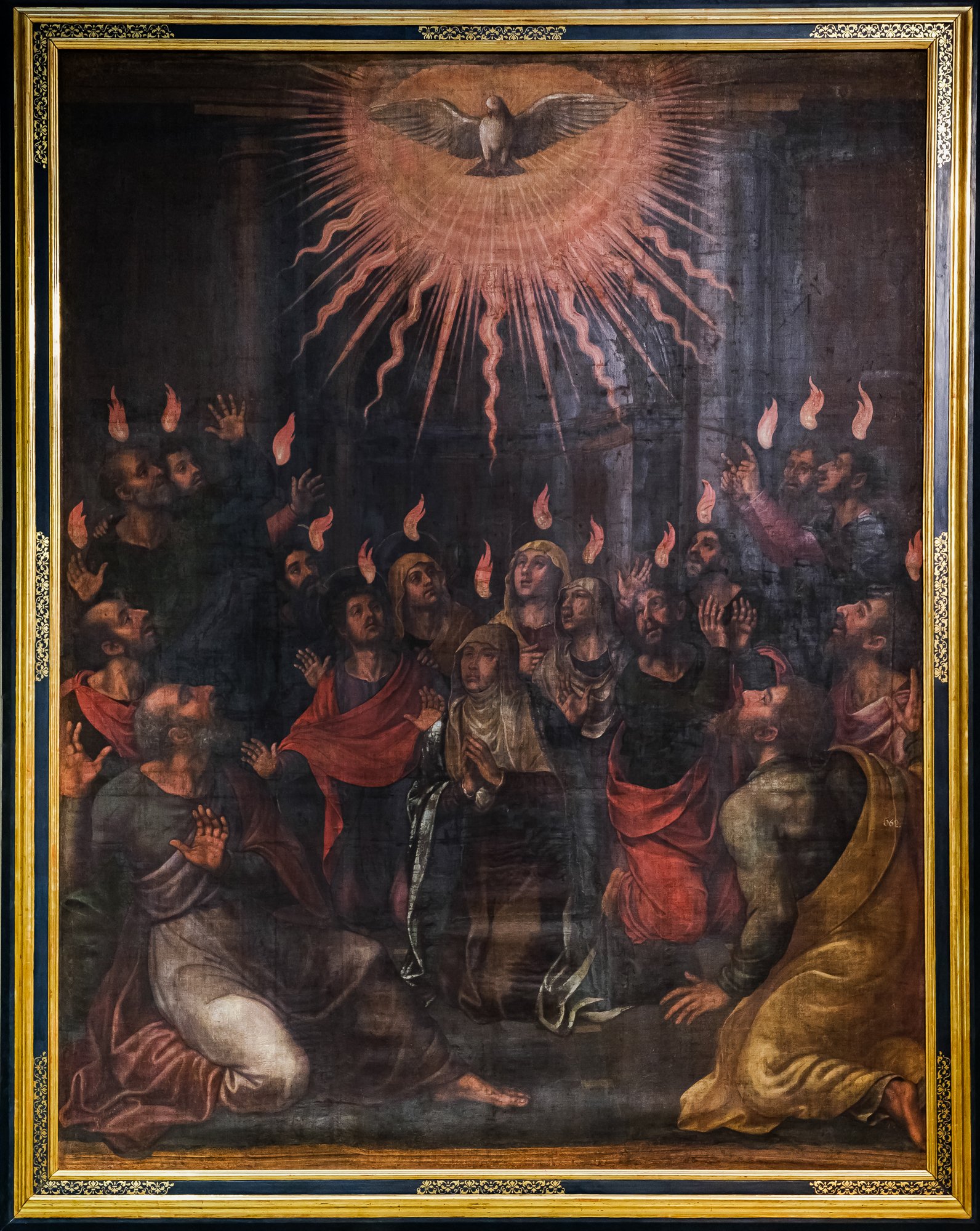There are dates in the liturgical calendar that echo older fires, remnants of mysteries neither extinguished nor fully integrated into doctrine. Pentecost, for most, marks the descent of the Holy Spirit and the birth of the Church. But, in older layers of memory, beneath the surface of theological precision, a different current stirs. One that does not descend from heaven, but rises from the body. One in which the Fire does not fall upon the head to command, but blossoms within the flesh. Through a Gnostic lens, Pentecost becomes something else: not a founding, but a rupture. Far from a doctrine, a blaze.
In canonical terms, Pentecost is the fiftieth day after Passover, echoing the giving of the Law at Sinai. Yet, in the Gnostic substratum, this day does not restore Law, it burns through it. The “Spirit” that arrives like wind and tongues of flame is not an external force imposed upon the faithful, but the memory of a divine presence already hidden within. It is remembered. The sudden burst of speech, the so-called “glossolalia,” is not confusion; it is the sound of the Logos in multiplicity, each voice revealing a facet of the unutterable. The Spirit speaks, but each vessel interprets it according to its own inner fire.
Among certain Gnostic strands, especially Valentinian and Barbēlō-centric lineages, the Fire of Pentecost mirrors the mythic journey of Sophia: her descent into chaos, her cry for help, and her partial restoration. Pentecost, then, becomes the moment when Sophia re-emerges not as doctrine, but as flame within the many. No longer exiled, she enters again into matter, not to escape it, but to inhabit it fully. The tongues of fire that hover above the apostles are not external signs; they reveal that the body has become the altar. That each head, now touched, is a burning bush in secret.
In this light, Pentecost is a refusal of centralised temples. The Divine does not return to stone; it spreads through flesh. And, in that scattering, the Spirit becomes plural, not fragmented, but faceted. The Church that is born is not a structure, but a field of flames. From a Gnostic perspective, this moment does not found authority, it rather dismantles it. It abolishes the priesthood by igniting each one as priest of the unseen. The breath of the Spirit does not ordain, instead it devours.

Her name is not found in any gospel, nor in any list of prophets or saints, yet she has walked through Pentecost without incense, without tongues, without proclamation. Clarissa Dalloway, drifting through the streets of postwar London with flowers in hand, becomes unknowingly the vessel of a different descent. She does not speak in tongues, but her thoughts fracture and spiral like petals caught in sudden wind. The Spirit does not erupt in her, it infiltrates. It lives in the shimmer of her perception, in the fractured continuity of time, in the quiet exaltation of buying roses.
The world around her has ended. A war, a century, an idea of reason. And in its place hovers the unspoken. She senses it, in Septimus’ silence, in the clocks that toll like omens, in the way the air seems thinner on certain mornings. The pneuma, in Gnostic terms, is not the Spirit given, but the Spirit remembered, and Clarissa, like Sophia, rises through memory, through suffering, through the unbearable beauty of being still here. The party she prepares is not just social gesture; it is ritual, veiled. An echo of the upper room where bodies gather and something unspeakable passes between them.
